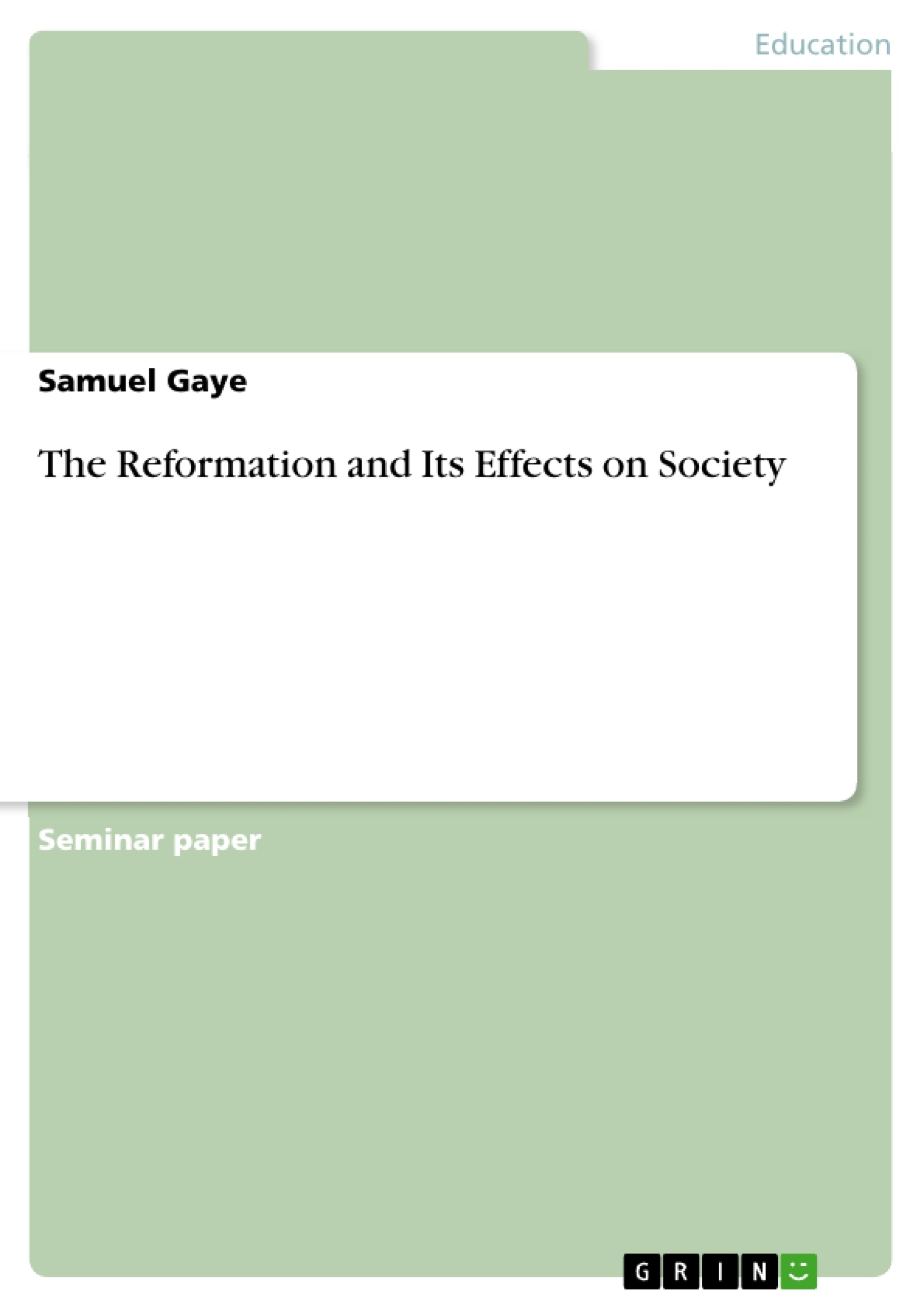In this paper, I will endeavor to provide a historical overview of the reformation and the factors that led to the reformation. I will also highlight a few men who challenged and exposed corruption in the church prior to the onset of the larger reformation movement. These men usually met catastrophic endings, but they were the forerunners of the reformation. They were way ahead of their time.
Next, I will examine the reformation era as I tried to delineate why the reformation was necessary and inevitable. You will see why the reformation was successful compared to earlier calls for reformation of the church. We will consider some key players in the reformation movement, and their contributions, as well as key concepts that underpinned the reformation movement.
Then I will do a detailed summary of Luther’s ninety-five theses and how the church reacted. Following the presentation of Luther’s theses and the church’s reaction, we will examine some positive impacts the reformation has had on society including in the areas of democracy, human rights, and education. It is my hope that as you read through these pages, you will come to understand the reformation movement, why it succeeded, and decide for yourself if it was necessary.
In the 16th century, Europe experienced a social shift that realigned power structures and laid the groundwork for a modern and advanced era. This shift affected all aspects of society including but not limited to the church, government, education, and the very way people lived. Prior to this period, Europe can be said to have been under a singular religious umbrella, Catholicism. This shift shook this umbrella and divided it into several pieces. This period in history is called the reformation.
Table of Contents
- Introduction
- Historical Background of the Reformation
- Factors that Give Birth to the Reformation
- Early Reformers
- Pierre Valdo
- John Wyclif
- The Lollards
- Jan Huss
- The Reformation
- Lutheranism
- Calvinism
- The Middle Way
- Martin Luther and the Ninety-Five Theses
- The Counter Reformation
- Effects of the Reformation
- The Reformation Effects on Modern Democracy
- The Reformation and Human Rights
- The Reformation and Education
- Split of the Church
- Conclusion
Objectives and Key Themes
This paper aims to explore the significant social shift that occurred in Europe during the 16th century, known as the Reformation. It delves into the historical context, causes, and key figures of this Protestant movement, focusing on its impact on various aspects of society, including religion, government, education, and everyday life.
- The rise and impact of Protestant movements challenging the Catholic Church.
- The influence of the Reformation on the development of modern democracy.
- The role of the Reformation in shaping human rights and individual liberties.
- The significance of the Reformation in the evolution of education and its accessibility.
- The long-lasting consequences of the Reformation's split in the Christian Church.
Chapter Summaries
The introduction sets the stage for the Reformation by highlighting its significance as a pivotal social shift in 16th-century Europe, marking a break from the dominant Catholic religious landscape. It delves into the origins and evolution of the Reformation, emphasizing its initial focus on challenging specific church practices and its subsequent transformation into a broader reform movement that resulted in a division within the Catholic Church.
The chapter on the historical background of the Reformation explores the pre-Reformation era, providing a context for understanding the factors that contributed to the emergence of the Protestant movement. It examines the social, political, and religious landscape of Europe prior to the 16th century, laying the groundwork for understanding the historical forces that shaped the Reformation.
The chapter exploring the factors that gave birth to the Reformation delves into the specific causes and catalysts for the rise of the Protestant movement. It examines various factors, such as corruption within the Catholic Church, growing intellectual dissent, and the influence of influential figures like Martin Luther, providing a comprehensive analysis of the driving forces behind the Reformation.
The chapter on early reformers examines the contributions of individuals who paved the way for the Reformation. It explores the lives and teachings of figures like Pierre Valdo, John Wyclif, and Jan Huss, highlighting their critiques of the Catholic Church and their influence on the development of Protestant thought.
The chapter on the Reformation itself delves into the core tenets of the movement, focusing on key figures like Martin Luther and his Ninety-Five Theses. It explores different branches of Protestantism, such as Lutheranism and Calvinism, and examines the impact of the printing press in disseminating reformist ideas.
The chapter on the Counter Reformation analyzes the Catholic Church's response to the Protestant movement, highlighting the efforts to curb the spread of Protestantism and reaffirm Catholic doctrines. It examines the Council of Trent, the Inquisition, and other measures taken by the Catholic Church to counter the Reformation.
The chapter on the effects of the Reformation examines the wide-ranging impact of the movement on various aspects of society. It explores the Reformation's influence on the development of modern democracy, human rights, and education, providing insights into the lasting legacy of the Protestant movement.
The chapter on the split of the Church explores the lasting consequences of the Reformation, focusing on the division within the Christian Church that emerged as a result of the Protestant movement. It examines the historical and theological implications of this split, providing a deeper understanding of the complex religious landscape that resulted from the Reformation.
Keywords
The Reformation, Protestant movement, Catholic Church, Martin Luther, Ninety-Five Theses, Lutheranism, Calvinism, Counter Reformation, Council of Trent, Indulgences, Purgatory, Printing Press, Modern Democracy, Human Rights, Education.
- Quote paper
- Samuel Gaye (Author), 2021, The Reformation and Its Effects on Society, Munich, GRIN Verlag, https://www.grin.com/document/1495739




